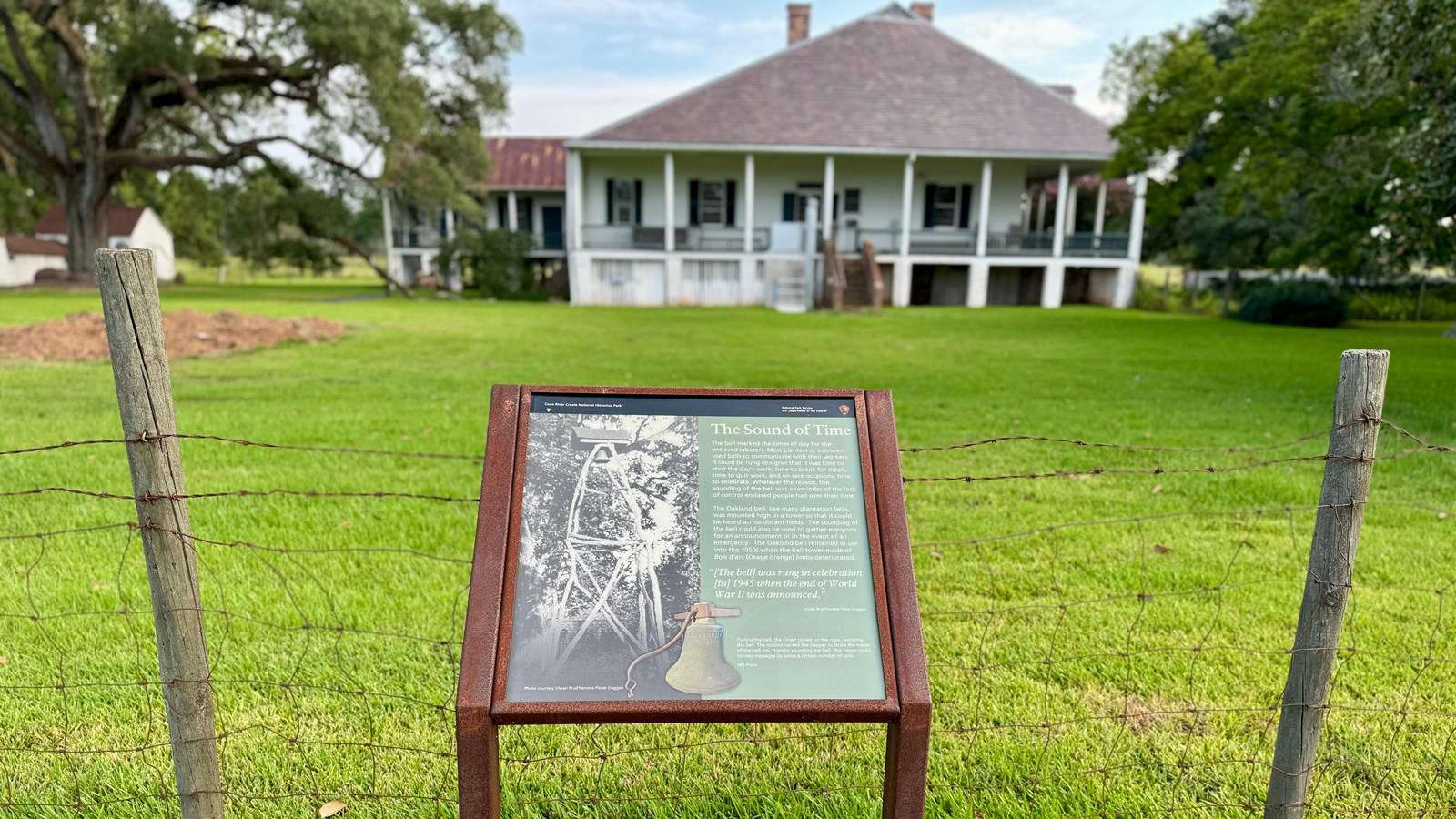Last updated: September 5, 2024
Place
The Sound of Time

Christy Hoover
Quick Facts
Location:
Natchez, LA
Amenities
1 listed
Historical/Interpretive Information/Exhibits
The bell marked the times of day for the enslaved laborers. Most planters or overseers used bells to communicate with their workers. It could be rung to signal that it was time to start the day's work, time to break for meals, time to quit work, and on rare occasions, time to celebrate. Whatever the reason, the sounding of the bell was a reminder of the lack of control enslaved people had over their time.
The Oakland bell, like many plantation bells, was mounted high in a tower so that it could be heard across distant fields. The sounding of the bell could also be used to gather everyone for an announcement or in the event of an emergency. The Oakland bell remained in use into the 1950s when the bell tower made of Bois d'arc (Osage orange) limbs deteriorated.
"[The bell] was rung in celebration [in] 1945 when the end of World War II was announced." Vivian Prud'homme Flores Duggan
To ring the bell, the ringer pulled on the rope, swinging the bell. The motion caused the clapper to strike the inside of the bell rim, thereby sounding the bell. The ringer could convey messages by using a certain number of tolls.
The Oakland bell, like many plantation bells, was mounted high in a tower so that it could be heard across distant fields. The sounding of the bell could also be used to gather everyone for an announcement or in the event of an emergency. The Oakland bell remained in use into the 1950s when the bell tower made of Bois d'arc (Osage orange) limbs deteriorated.
"[The bell] was rung in celebration [in] 1945 when the end of World War II was announced." Vivian Prud'homme Flores Duggan
To ring the bell, the ringer pulled on the rope, swinging the bell. The motion caused the clapper to strike the inside of the bell rim, thereby sounding the bell. The ringer could convey messages by using a certain number of tolls.
